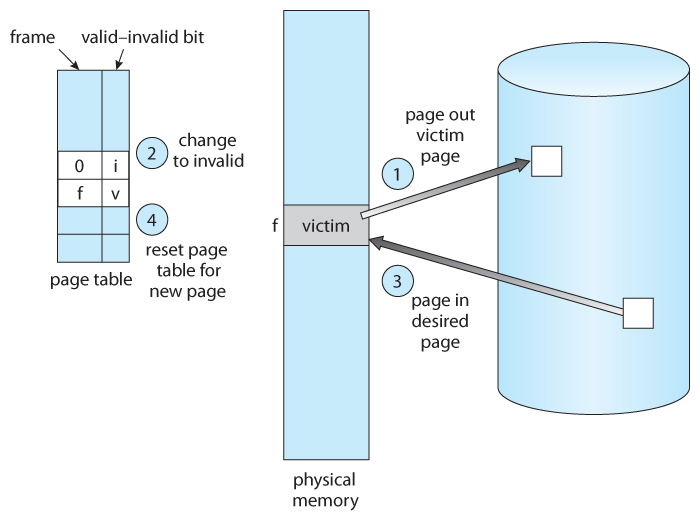
Brief Explanation
Since actual physical memory is much smaller than virtual memory, page faults happen. A page fault happens when a running program accesses a memory page that is mapped into the virtual address space, but not loaded in physical memory. In case of page fault, Operating System might have to replace one of the existing pages with the newly needed page. Different page replacement algorithms suggest different ways to decide which page to replace. The target for all algorithms is to reduce the number of page faults.
View Demo!